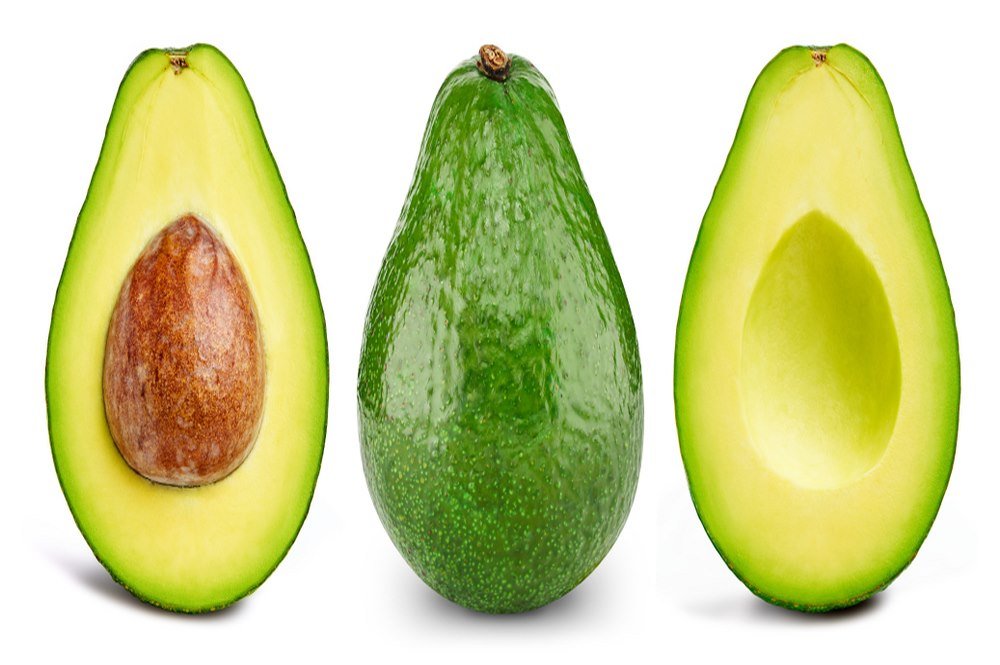The avocado is a rather distinctive fruit as it is high in healthy monounsaturated fats as compared to most of the fruits which are high in carbohydrates. Avocados are one of the nutrient-dense super foods that have numerous health benefits – ranging from promotion of heart health by providing antioxidants. A small serving of avocado provides substantial amounts of vitamins and mineral thus making it a superfood. Almost one-third of an avocado weighing 50g contains nearly 20 minerals and vitamins it. Avocado is virtually the only fruit which contains monounsaturated fats in such a balanced level that it promotes heart health and gives the body the good fats. Some varieties of avocado are naturally cholesterol-, sugar-, and sodium-free, thus making it healthier for everyone.Avocado is a fruit from the avocado tree scientifically known as Persea Americana. Avocado is pricey for its high nutrient value and is a must ingredient in numerous dishes due to its rich texture and good flavor. Avocado is the major ingredient in guacamole and many other popular dishes too. Avocado is becoming incredibly popular these days among health-conscious individuals. The nutritionists often refer to avocado as a superfood which is not stupefying given its health properties. There are numerous types of avocado that vary in color and shape, from round to pear-shaped and from black to green. The weight of avocados might also vary from 3 pounds (1.4 kg) to 8 ounces (220 grams). One of the most popular varieties of avocado is the Hass avocado.
The creamy consistency of avocado fruit is even suitable and more enjoyable for the babies to have it as their fresh fruit. In addition, avocados help in increasing the absorption of fat-soluble vitamins in the body such as vitamins A, D, E, and K by acting as a “nutrient booster”. One-third of an avocado weighing 50 grams gives almost 80 calories and provides the body with twenty phytonutrients, minerals, and vitamins, thus making avocado a healthy food choice to attain all nutrient requirements. Although phytonutrients are not a requirement for the body – but the research indicates that these naturally occurring plant substances help in the promotion of health.
One of the many reasons for the popular marketing of avocado is that it provides the body with essential fats that help in making the body leaner and avoids the blockage of arteries. According to the American Heart Association and Dietary Guidelines for Americans, a person must avoid the intake of trans fat, saturated fat, sodium, and added sugars. Therefore, it is important to make healthier food choices and pick nutrient-dense foods like fresh fruits so that your body remains functional and free of diseases. Speaking of fats, the majority of the fat content in your diet must come from polyunsaturated or monounsaturated fats to have a healthy heart. Since there are more than 75% of monounsaturated fats in one serving of avocados, so it is a heart-healthy food choice.
Hass avocado is often known as alligator pear as it tends to have a pear shape which is very explainable and has bumpy, green skin similar to an alligator. In a single 3.5 ounce weighing, 100 grams of avocado gives you 160 calories, 15 grams of monounsaturated fats, and 2 grams of protein. Although avocado provides 9 grams of carbohydrates, but 7 grams of these carbohydrates are fibers, so there are only 2 grams of carbohydrates. Thus, making avocado a low-carbohydrate food which is well-suited for fat loss too. The 100 gram serving of avocado also provides 26% of the daily value of vitamin K, 17% of the daily value of vitamin C, 14% of the daily value of vitamin B5 and also gives you small amounts of copper, magnesium, phosphorous, zinc, B3 (niacin), B1 (thiamine), and B2 (riboflavin).

